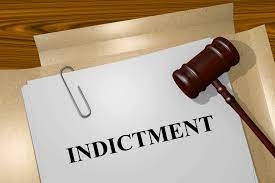He had aides stash those records in boxes that also included personal items and ordered them shipped to his estate in Mar-a-Lago at the end of his tenure, according to the indictment.
The charging document also says that on at least two occasions, Trump showed classified records to visitors without security clearances at his golf club in Bedminster, New Jersey — including the map of a military operation to a representative of his political committee.
As the Justice Department began inquiring about the records stashed at Trump’s home, the indictment alleges, Trump ordered an aide — Walt Nauta — to begin moving boxes with classified records to obscure them from investigators. Trump did this without informing his attorney, who was preparing to search Trump’s property in compliance with court-authorized subpoenas to recover the records.
Trump is facing 31 counts of violating the Espionage Act through “willful retention” of classified records and six counts related to his alleged effort to obstruct the investigation. Nauta was also charged with five felonies, including obstruction of justice and making false statements to the FBI.
The evidence arrayed by the Justice Department paints a devastating picture of an ex-president intent on squirreling away national military secrets at his homes, irrespective of potential consequences. Trump, who took office in 2017 after a campaign in which he lambasted Hillary Clinton for jeopardizing classified information on an unsecured email server, is portrayed as haphazardly stashing documents in different corners of his home — with open access to employees of his club.
At one point in December 2021, Nauta found several boxes toppled in Trump’s Mar-a-Lago storage room, with papers strewn about the floor, including some labeled as “Five Eyes” intelligence — a reference to the group of nations that are most closely allied with the United States and engage in a higher level of intelligence sharing. Nauta took two photos of the spill and shared them with another Trump employee.
And when DOJ came calling to recover them, the indictment notes that Trump — speaking to his attorney — made at least two references to Clinton and her lawyer’s claim that he had deleted her emails before responding to a Justice Department subpoena. Trump’s lawyer, per the indictment, memorialized those exchanges, as well as another in which the lawyer said Trump appeared to instruct him to remove any documents that might be particularly incriminating.
The indictment notes that in June 2022, after Trump orchestrated the last-minute removal of boxes from rooms that DOJ was likely to inquire about, he delayed his trip from Mar-a-Lago to Bedminster in order to greet investigators at his home and pledge to be an “open book.”

